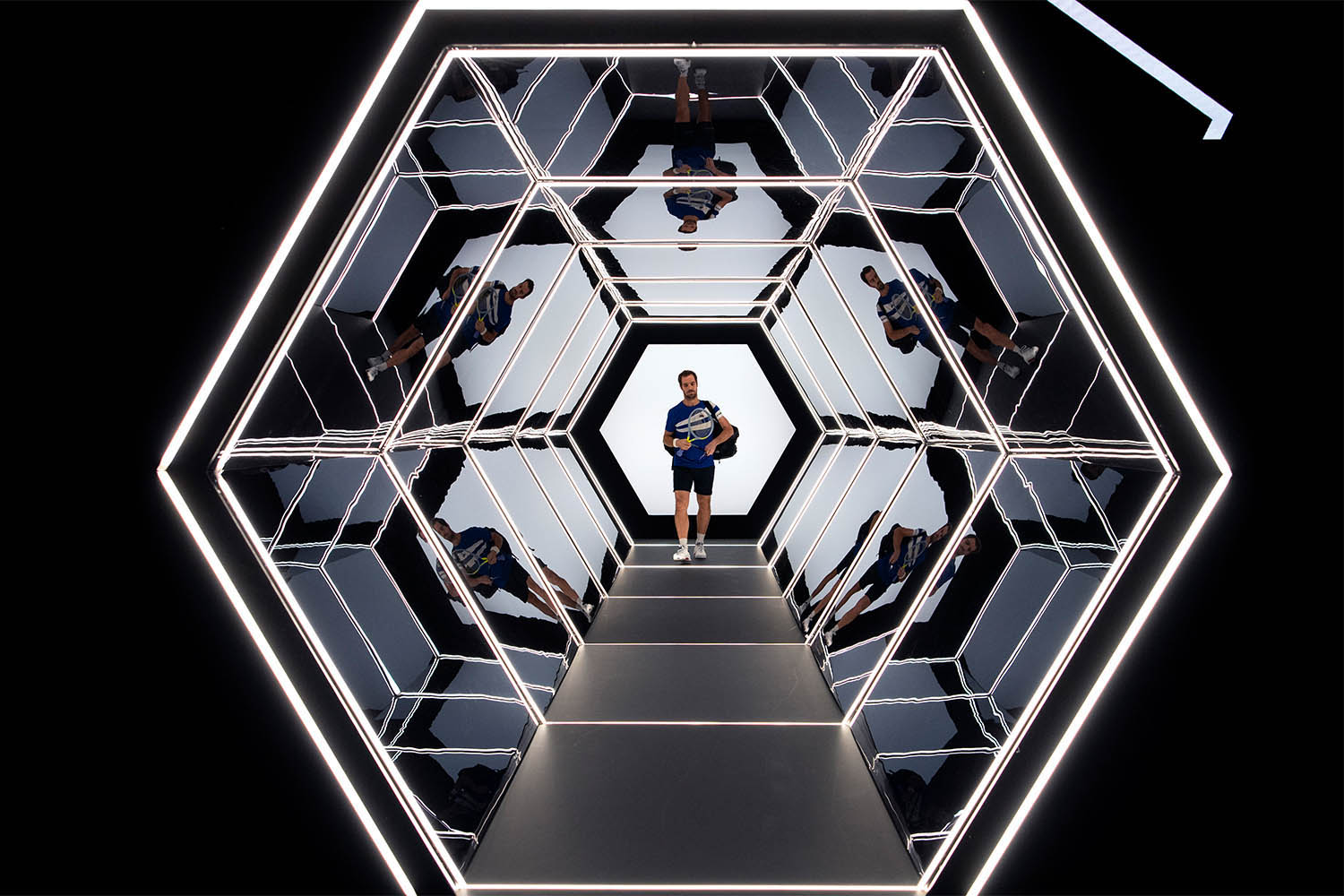French tennis will say goodbye to one of its favourite sons this fortnight as Richard Gasquet, a man blessed with enormous talent and a wand of a one-handed backhand, retires from the sport after more than 23 years on tour.
Part of France’s so-called golden generation, Gasquet, who turns 39 next month, was one of the “New Musketeers”, alongside Jo-Wilfried Tsonga, Gilles Simon and Gael Monfils. But as Gasquet prepares to join Tsonga and Simon in retirement, it is 42 years since a Frenchman won a Grand Slam, when Yannick Noah served and volleyed his way to glory at Roland Garros. The chances of anyone following suit any time soon appear remote.
Gasquet was meant to be the one. In 1996, when he was just nine, France’s Tennis magazine put him on its front cover with the caption: “The champion: What France is waiting for?” Just as Andy Murray had to shoulder the hopes of a nation as Britain craved a men’s champion at Wimbledon, in France, where tennis is a bigger sport than in the UK, the burden was immense. “I had a lot of pressure in France, when I was 13, 14,” Gasquet told The Observer in an interview at the Monte Carlo Country Club. “It’s the only thing I regret about my career, that when I was a child, I felt a lot of pressure to play, to practise, really a lot of expectation on my shoulders. It was very difficult to carry on. It’s a big thing in France, nobody won since Yannick. Everyone wants you to win, so you feel it. Sometimes I felt it a little bit too much.”
At 12, he beat Rafael Nadal to win Les Petits As event in France, the most prestigious junior tournament in Europe. Winning the junior title at Roland Garros in 2002 only increased the hype. He won his first ATP match aged 15, was dubbed “the little Mozart of tennis” and in 2005, still only 18, he beat Roger Federer, the then world No 1, in Monte Carlo. It seemed a matter of time before he would hit the heights.
It never quite happened, even if, by anyone’s estimation, Gasquet has enjoyed a superb career, winning 16 titles and more than 600 matches worldwide. He was ranked world No 7, helped France to Davis Cup glory in 2017 and has earned more than $21 million (£15 million) in prize money. But in a sport where greatness is increasingly measured in terms of Grand Slam success, making just three semi-finals is a disappointing return.
‘As a child, I felt a lot of pressure to play, to practise, a lot of expectation. It was very difficult to carry on’
‘As a child, I felt a lot of pressure to play, to practise, a lot of expectation. It was very difficult to carry on’
Richard Gasquet
It did not help that in each one, he came up against one of the “Big Three”, losing to Federer and Novak Djokovic at Wimbledon in 2007 and 2015 respectively, and to Nadal at the US Open in 2013. Throw in Murray and in his 20 clashes with his four biggest rivals at the majors, he lost all 20. “They were just better than me when I played against them,” he said.
His results were weakest at Roland Garros. While some players thrive at home, feeding off the support, Gasquet struggled, with just one quarter-final, in 2016. “In France, it’s a big federation, Roland Garros, it’s not easy for French players, that’s what I feel,” he said. “Sure, sometimes, maybe I could have been more relaxed, but it’s not easy. I tried my best. I could have served better, I could have had a better forehand, for sure. I could have done better things, but I tried everything I could. And of course, it was a great era with Federer, Nadal, Djokovic, it was not easy to win.” Gasquet will be remembered for possessing one of the most iconic shots in men’s tennis over the past 20 years: his blistering, bewildering one-handed backhand. Played with an incredibly loose wrist, he can whip it anywhere, any way.
“I’m popular because of this shot, everyone’s talking to me about my backhand,” he said. “It’s a great shot, it’s a great weapon. I like the technique of the game of tennis, it’s important for me, so I’m happy when people like it.”
He is also proud of his longevity in a career of highs and one notable low, when he was briefly banned after testing positive for a metabolite of cocaine in 2009, though he was later cleared when the Court of Arbitration for Sport accepted his explanation that his positive test had come from kissing a woman in a nightclub.
Now ranked 166, Gasquet received a wild card into Roland Garros and though he has been battling a calf injury, he can’t wait to play, though if he wins his first match he faces the likelihood of playing world No 1 Jannik Sinner next. “I have great memories of people cheering for me,” he said.
Newsletters
Choose the newsletters you want to receive
View more
For information about how The Observer protects your data, read our Privacy Policy
“It was crazy good. But I’m a bit old now, I’m feeling a bit tired, mentally, physically. But I’m very lucky to finish at Roland Garros. I’m really happy with that.”
Photography by Justin Setterfield/Getty Images
